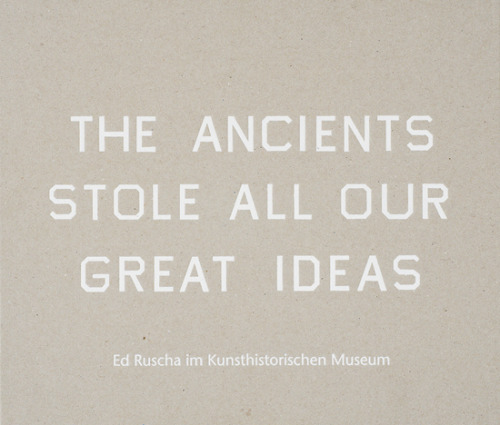But Most Intensely Love For That Other Thing, The Sound-absorbent Screen, Life’s White Machine, Shadows
But most intensely love for that other thing, the sound-absorbent screen, life’s white machine, shadows massing in the middle distance, although that’s not even close, the texture of et cetera itself
Lerner, Leaving the Atocha Station
More Posts from Ilunado and Others
...without at least an elementary instruction in mathematics and science, man will remain a stranger in this world, a stranger in the culture that supports him.”
Ernst Mach, en Sigmund, Karl. Exact Thinking in Demented Times: The Vienna Circle and the Epic Quest for the Foundations of Science (pp. 19-20).
Ethical thought consists of the systematic examination of the relations of human beings to each other, the conceptions, interests and ideals from which human ways of treating one another spring, and the systems of value on which such ends of life are based. These beliefs about how life should be lived, what men and women should be and do, are objects of moral enquiry; and when applied to groups and nations, and, indeed, mankind as a whole, are called political philosophy, which is but ethics applied to society.
Isaiah Berlin The Pursuit of the Ideal
That's the question...

toska [tohs-kah]
(noun) An untranslatable, Russian word – Vladimir Nabokov describes it best: “No single word in English renders all the shades of toska. At its deepest and most painful, it is a sensation of great spiritual anguish, often without any specific cause. At less morbid levels it is a dull ache of the soul, a longing with nothing to long for, a sick pining, a vague restlessness, mental throes, yearning. In particular cases it may be the desire for somebody or something specific, nostalgia, love-sickness. At the lowest level it grades into ennui, boredom.” (via wordsnquotes)
The neuroscientist Antonio Damasio explains how minds emerge from emotions and feelings.

by ed ruscha (+)
[on tumblr]
Para leer en este 2014

In honor of #readwomen2014 – an effort to equalize the gender imbalance in our collective reading habits – here are 14 fantastic, timeless reads by women:
Joan Didion on self-respect
Susan Sontag on photography as aesthetic consumerism and a form of modern violence
Virginia Woolf on the creative benefits of keeping a diary
Annie Dillard on presence over productivity
Helen Keller on optimism
Alexandra Horowitz on the blinders of attention
Anaïs Nin on why emotional excess is essential to creativity
Hannah Arendt on how bureaucracy fuels violence
Jennifer Finney Boylan on what it’s like to be a transgender parent
Anissa Ramirez on saving science education
Jeanette Winterson on adoption and how we use storytelling to save ourselves
Dani Shapiro on the pleasures and perils of the creative life
Virginia Woolf on how to read a book
Susan Sontag on literature and freedom
Artwork above by Joanna Walsh
...we must be very careful not to exaggerate the uniqueness of our species. The ancients apparently never gave much thought to this practice, the opposite of anthropomorphism, and so we lack a word for it. I will call it anthropodenial: a blindness to the humanlike characteristics of other animals, or the animal-like characteristics of ourselves.
Frans de Waal

the new American Gothic. // artist: Criselda Vasquez.
-
 iprayforworldpeacesblog liked this · 3 months ago
iprayforworldpeacesblog liked this · 3 months ago -
 yoga-onion liked this · 1 year ago
yoga-onion liked this · 1 year ago -
 petrichor2 reblogged this · 2 years ago
petrichor2 reblogged this · 2 years ago -
 petrichor2 liked this · 2 years ago
petrichor2 liked this · 2 years ago -
 tweemo-woolf liked this · 3 years ago
tweemo-woolf liked this · 3 years ago -
 kmdn20 liked this · 5 years ago
kmdn20 liked this · 5 years ago

